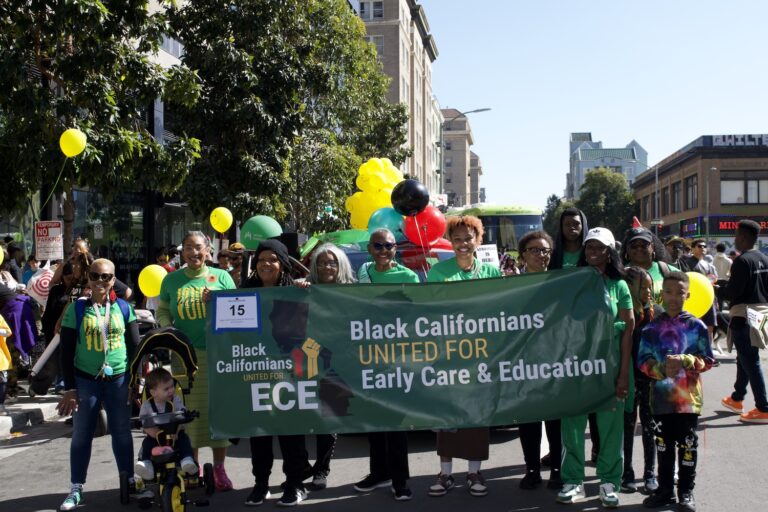
Announcing the Enriching Public Pre-K Through Inclusion of Family Child Care (EPIC FCC) initiative
Family Child Care (FCC), Pre-K
The EPIC FCC initiative seeks to support state, city, county and tribal government leaders in expanding the participation of family child care (FCC) educators in their pre-K systems or engaging FCC educators in these pre-K systems for the first time. Home Grown is committed to ensuring that home-based child care providers can fully participate in well-resourced early childhood initiatives, including pre-K. Learn more and apply.

Annual CACFP Reimbursement Rate Adjustment Does Not Close the Cost Gap: Home-based Child Care Programs Need More Than Pennies
CACFP & Hunger, Family, Friend and Neighbor (FFN), Policy

Network Benchmarks and Indicators Toolkit
Family Child Care (FCC), Family, Friend and Neighbor (FFN), Networks
This Toolkit is intended to help you implement the Network Benchmarks and Indicators. It includes resources developed and used by networks across the U.S.

Making Progress Through a Complex Issue: Imagining a New Family Child Care Licensing Approach
Family Child Care (FCC), Policy
This family child care recommendation report provides in-depth insight into the challenges providers face in current family child care state licensing systems and recommended solutions to help design system reform using FCC provider perspectives and expertise.

Building Belonging: Valuing Family Child Care via State Licensing Systems
Family Child Care (FCC)
Home Grown convened a group of FCC providers to gain a deeper understanding of state licensing for family child care and develop recommendations for these systems. This report represents their work.

Home Grown Collaborates with Partners and Providers to Develop Detailed Comments to USDA
CACFP & Hunger, Family Child Care (FCC), Family, Friend and Neighbor (FFN), Policy
Home Grown Collaborates with Partners and Providers to Develop Detailed Comments to USDA.

Equal Partners: Keys to Building Strong Funder Relationships With Home-Based Providers
Family Child Care (FCC), Networks
Dawn Holden Woods shares some key advice for home-based child care provider leaders working with funders.

Creating Spaces Where Black Early Child Care Educators Feel Affirmed
Family Child Care (FCC), Leadership, Networks, Provider Well-Being
The founders of Black Californians United for Early Care and Education (BlackECE) share how they create spaces of inclusion for Black early child care educators.

Home-based Child Care Helps Babies Thrive
Family Child Care (FCC), Family, Friend and Neighbor (FFN)
Home-based child care is the most common child care arrangement for babies. This care type supports their development and sets them up for futures where they thrive. Home Grown has created this resource to share how home-based child care helps babies thrive.

Rules Revisions for CACFP Offer Opportunities to Improve Program Accountability and Equity
CACFP & Hunger, Family Child Care (FCC), Policy
The serious deficiency process is a tool used to help regulate CACFP but often subjects home-based child care providers unfairly to swift and harsh penalties.

Child Care Insurance Is Expensive, Hard to Find, and Complex: One More Burden for Home-Based Providers
Family Child Care (FCC), Housing, Policy
Home-based child care providers have to carry additional insurance for their businesses, but obtaining the coverage is not as straightforward — or affordable — as it could be.

Implementing Benchmarks for High- Quality HBCC Networks: Findings from a National Survey of HBCC Networks
Comprehensive Services, Equity (language, culture, race), Family Child Care (FCC), Family, Friend and Neighbor (FFN), Finances, Sustainability & Compensation, Networks, Provider Well-Being, Publication, Quality, Research & Evaluation
This report includes findings from a national survey of networks about how HBCC networks address the benchmarks and indicators for high-quality.